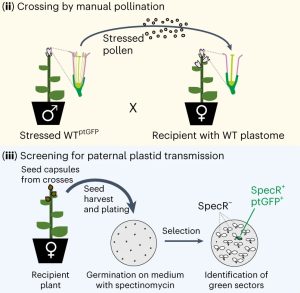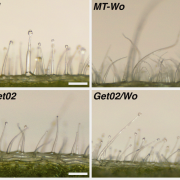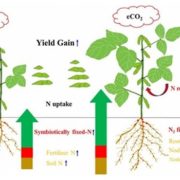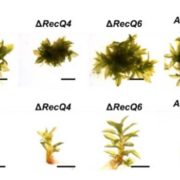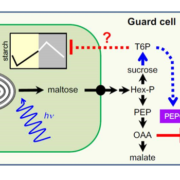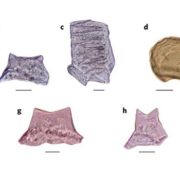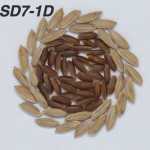A paternal perspective on maternal inheritance
Nuclear DNA is inherited from both parents during sexual reproduction, but organellar DNA is (usually) exclusively received from the mother. However, stable biparental inheritance of organellar DNA has also been reported in plants and animals but its molecular mechanism is unknown. Using quantitative genetic screening, Chung et al. hypothesized that altered plastid inheritance patterns can result from stress-induced pollen development. They used a pollen donor carrying spectinomycin resistant fluorescently-labeled plastids to fertilize a pollen receiver with spectinomycin sensitive plastids. Spectinomycin suppresses greening by preventing the production of plastid proteins. Upon spectinomycin exposure, tissues exclusively carrying maternal plastids turned white while green sectors revealed the presence of paternal plastids. Paternal plastid transfer is extremely rare under normal circumstances, but mild chilling stress (at 10°C) increased the probability of paternal transmission by 150 times. Furthermore, the authors demonstrated that the exonuclease DPD1 (Defective in Pollen organelle DNA Degradation 1) is involved in plastid inheritance by showing that the tobacco dpd1 knockout mutant, which retains organellar DNA during pollen production, has a 120-fold higher paternal plastid transmission rate. As the paternally inherited plastids can be passed on to the progeny, they can potentially influence plant evolution and facilitate plant breeding. (Summary by Rajarshi Sanyal @rajarshi_sanyal) Nature Plants 10.1038/s41477-022-01323-7


